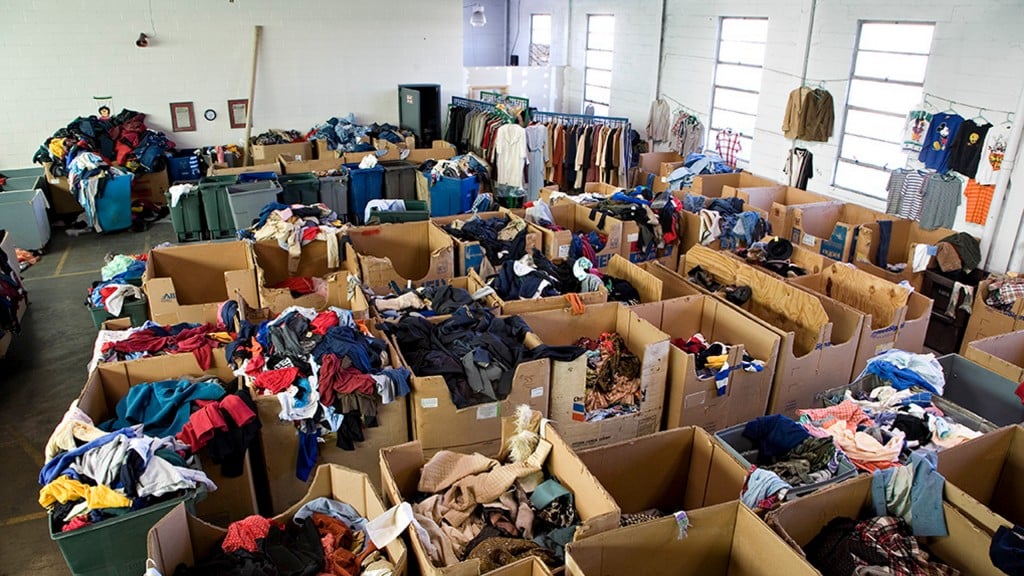SMART strongly encourages giving the gift of textile recycling this holiday season
Recycling and re-using used clothing and other textiles can have a major impact on reducing greenhouse gases and reducing the world’s carbon footprint

Many households and businesses across North America will likely be in the midst of a last minute dash to de-clutter before the holidays and end of the year. But outgrown, stained or unwanted clothes and other textiles should not just be thrown in the trash. According to Secondary Materials and Recycled Textiles Association (SMART) Executive Director Jackie King, more than 95 percent of all textiles can be recycled or reused in some way. While nearly half are reused as apparel, another 30 percent become wiping rags or polishing cloths used in commercial and industrial settings, with the remainder reprocessed into fibers and remanufactured as furniture stuffing, upholstery, home insulation, automobile sound-proofing, carpet padding, building materials and more.
In addition to unwanted clothing, other recyclable textiles including linens, towels, pillows, footwear, accessories, bags and stuffed animals end up in landfills each year—nearly 13 million tons in 2013 alone, according to the U.S. Environmental Protection Agency (EPA). King attributes much of the reason that only 15 percent of textiles are recycled to the fact most people do not view textiles as a household recyclable like paper, plastic, aluminum and glass.
Yet recycling textiles can have a major impact on reducing greenhouse gases and reducing the world’s carbon footprint. According to the EPA, two million tons of textiles are currently recycled annually in the U.S. alone. This is the equivalent of removing one million cars from America’s highways—far more than the impact of recycling yard trimmings, glass and plastic and nearly equals the impact of aluminum recycling. The recycled textile industry also reduces the need for landfill space, decreases the use of natural resources including water and petroleum used in textile manufacturing and lessens pollution generated in the manufacturing process.
King says the secondhand clothing industry not only helps close the loop on post-consumer textile waste, but also provides many people around the world their only affordable access to quality apparel. “This time of year is an opportunity for those of us fortunate enough to be in a position to have to clear space for incoming gifts. Our goal at SMART is to get people to think differently about what to do with those unwanted textiles this holiday season, and make a real difference by giving back to our planet and the people around the world who live in it.”
To find a local textile recycler, look for collection boxes in your neighborhood, check local charities and thrift stores and contact your town or city to see if it has a textile recycling program.
For more information on SMART, including educational resources for consumers, educators and children, visit www.smartasn.org. Please direct media inquiries for SMART to Kathy Walsh at 410-420-2001 or by email at kathy.walsh@fallstongroup.com.
Established in 1932, the Secondary Materials and Recycled Textiles Association (SMART) is an international nonprofit trade association that strengthens the economic opportunities of its diverse membership by promoting the interdependence of the for-profit textile recycling industry segments and providing a common forum for networking, education and trade. SMART members use and convert recycled and secondary materials from used clothing, commercial laundries and non-woven, off spec material, new mills ends and paper from around the world. SMART member companies create thousands of jobs worldwide, proving each day you can make money by being social responsible.
Company info
3465 Box Hill Corporate Center Drive, Suite H
Abingdon, MD
US, 21009
Website:
smartasn.org


